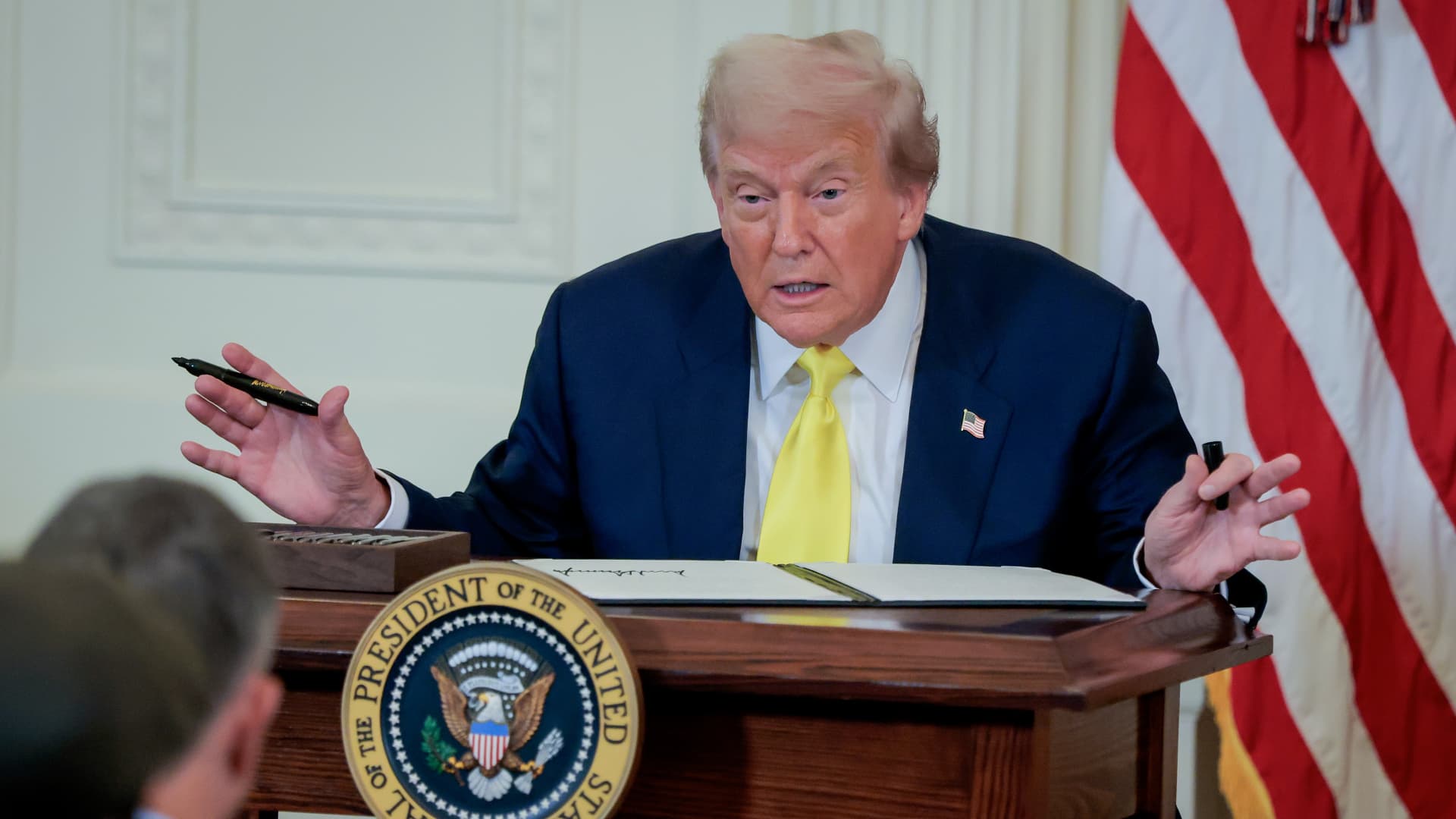WASHINGTON, DC – AUGUST 07: U.S. President Donald Trump gesturse as he signs a National Purple Heart Day Proclamation during an event to honor recipients of the Purple Heart in the East Room of the White House on August 07, 2025 in Washington, DC. The ceremony recognizes 100 veterans who were wounded in military action. (Photo by Anna Moneymaker/Getty Images)
Anna Moneymaker | Getty Images News | Getty Images
President Donald Trump stepped up pressure on large banks and their regulators on Thursday, signing an executive order requiring the banking industry to ensure it is not refusing financial services to anyone based on political or religious beliefs, a practice frequently described as “debanking.”
The order directed regulators to review all banks they supervise for any current or past practices that would effectively bar customers based on political or religious beliefs, and levy fines or other disciplinary measures as needed. It said regulators may refer certain cases to the Justice Department for potential civil action and also directed regulators themselves to purge any policies or practices that may discourage banks from providing services based on non-financial reasons. The executive order is the latest in a growing pressure campaign against the financial sector by U.S. conservatives, who argue they have been unfairly deprived of services on the basis of their political beliefs.
Trump claimed in a CNBC interview on Tuesday that he personally was discriminated against by banks, asserting without evidence that JPMorgan Chase and Bank of America refused to take his deposits following his first term in office. JPMorgan said on Tuesday it does not close accounts for political reasons. Bank of America said it does not comment on client matters, and would welcome clearer rules from bank regulators on how to conduct its activities.

The executive order said some financial institutions participated in “government-directed surveillance programs” against conservatives following the attack on the U.S. Capitol on January 6, 2021, by Trump supporters. “Such practices are incompatible with a free society and the principle that the provision of banking services should be based on material, measurable, and justifiable risks,” the executive order said.
Large banks have consistently said they do not reject customers on political or other belief-based grounds. Instead, they have argued that overzealous bank regulators and supervisors have discouraged them from engaging with certain sectors and have called for clearer guidelines. In a joint statement, major banking groups thanked the Trump administration for efforts to rein in “runaway regulations” and said the new order may provide sought-after clarity for lenders.
“It’s in banks’ best interest to take deposits, lend to and support as many customers as possible. Unfortunately, regulatory overreach, supervisory discretion and a maze of obscure rules have stood in the way,” said a joint statement from the Bank Policy Institute, American Bankers Association, Consumer Bankers Association and Financial Services Forum.
Trump-led regulators have already taken steps to loosen regulations, with all three federal bank regulators announcing this year they would no longer police banks on so-called “reputational risk,” wherein supervisors could sanction institutions for activities that are not strictly prohibited but could expose the bank to negative publicity or costly litigation. The executive order directed all regulators to stop using that standard within 180 days.
Banks increasingly complained the reputational risk standard was too subjective and vague, allowing bank supervisors to effectively bar firms from providing services to some people or sectors. The industry has also argued regulators need to update anti-money laundering rules, which frequently can force banks to shut down suspicious accounts without providing a reason.





